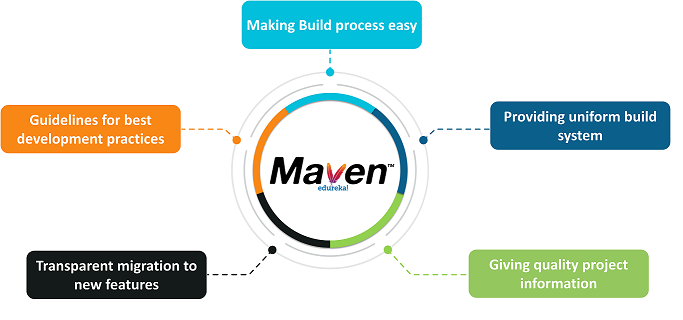In this digital age when information flows freely and ideas spread like wildfire, the long-standing concept of community has had to undergo a profound transformation. It is no longer limited to locality, but now arises around shared points of interest, beliefs, and experiences instead. One such phenomenon that has fascinated many people is “ZillExit.” Although the term is new, it points to a growing movement with significant resonance among society as a whole.
What is ZillExit?
ZillExit describes a collective choice made by people particularly from the Millennials and Generation Z groupings to break free from traditional societal expectations or norms – that is an overhanging velvet rope of uniformity they find oppressive, empty, or seen as contrary to their values. The word “ZillExit” is a blending of “Zillennial” which stands for Generation Z and “Exit,” i.e. to get out from established systems whether they be social or economic or cultural in nature.
ZillExit is not one simple movement, but rather a series of decisions by individuals who share an identical frustration with what is around them. These frustrations often stem from issues like economic inequality, environmental destruction, social injustice and the hollowness of consumerism. To many, ZillExit is a way to fight back, a means of feeling in control of things even as the world seems ever more out of their grasp.
The Roots of ZillExit
The starting points of ZillExit can be followed back to the monetary slump of 2008. The Millennial age grew up during a time of monetary flimsiness, and its effect has been felt for quite a long time from that point onward. Subsequent waves of precarious employment, combined with crashing housing prices and exploding student loans have created what many members might describe as disillusionment: “it wasn’t supposed to go like this.”
For Gen Zers, things have probably been just as bad. Nature and technology cast them into an unprecedented rapid sea of change; they witnessed a new world with failures in climate politics, mass extinction. Social media, while giving them a convenient platform for communication, has brought about a venue where inequality is ruthlessly exposed to all. Nor is the nature of online discourse very healthy at times-
These collective experiences have brought a feeling of shared dissatisfaction with the traditional road to success. Once revered markers in the passage from childhood to maturity—stability of employment, buying one’s own home, getting married, starting and having kids—seem beyond reach or, for some members now of society, simply unwanted. Instead many young people are looking for new ways to live that reflect their values and bring them greater satisfaction.
The Manifestations Of ZillExit
ZillExit may present itself in different forms, based on the needs of individuals and the circumstances they are in. Some of the more prominent examples include:
Digital Detox and Social Media Withdrawal: By ZillExit, one of the most prominent expressions actually is to greatly reduce your use of or quit using social media platforms entirely. For many others, the endless acres of information, self-curation into a perfect online image and downright meanness has been absolutely overwhelming. By taking a break from these areas, people hope to regain their mental health, their privacy, their leisure time.
Late-Onset Frugality And Non-Consumerism: Again, a significant aspect ZillExit lies in refusing to accept consumer culture. Many young people are abandoning the pursuit of material wealth or collecting possessions instead They practice minimal living. They emphasize living experience rather than things, they promote sustainable and ethical consumption-concepts that were once thought little about or unprofitable. With this move often comes steps towards simple living, tiny houses, concepts like vanife where the emphasis is freedom and independence.
Career Change and the Gig Economy: Traditional career paths, promising stability and upward mobility, don’t attract everyone. For many Millennials or members of Generation Z, the gig economy, remote work and freelancing offer a more flexible way of life that’s attuned to their desire for autonomy, work–life balance etc. For some, ZillExit means leaving a corporate job to start a passion project, small enterprise of their own; may be even travelling while working (remotely).
Distrusting Established Institutions: From organized religion to government, traditional higher education and more, many young people today are questioning the integrity and relevance of long-standing institutions. This cynicism is usually inflamed by scandals, graft and leaders who purely look out for themselves. Consequently, some turn towards any manner of alternative spirituality or self-education
Eco-Activism: Many of the ZillExit decisions are driven by thoughts of environmental conservation. Young people increasingly see the effects of their lifestyle choices made on the planet and endeavour to make them more sustainable. This can involve anything from cutting down on waste in one’s diet or choosing an all-plant diet. It might also include taking up activities such as climate activism and sustainable technologies got a hand in, for when push comes to shove it may even mean moving outside urban areas to follow a less energy guzzling lifestyle off the grid or on eco-communes promoting harmony with nature.
The Impact of ZillExit on Society
ZillExit may be only in its infancy, yet already it has begun to leave its mark on society for those old-traditional industries reliant upon consumer culture have found themselves having to adapt as tastes change in the market. The rise of sustainable fashion and ethical consumer goods, as well as eco-tourism services, is but a response to this increasing demand for something in place of what we now have
In the workplace, new trends alongside remote work and freelance contracting are changing the way that companies traditionally have been structured. Companies increasingly are offering their employees flexible work arrangements and re-examining corporate culture as a way of attracting new young talent. The gig economy holds particular potential for solving some things-especially if you’re looking to strike out at something different from the old rut altogether.
On a broader scale, ZillExit poses a challenge to existing power structures. Having dispensed with traditional institutions and made their own way in the world, Millennials and Generation Z are forcing society to confront the inadequacies and failures of those systems in place. This has potential social as well as political implications, suggesting that new ideas might actually take hold for once.
Criticisms and Challenges
Yet despite its appeal to some, ZillExit is not without its critics. There are those who say that the movement is too idealistic and fails to deal with some of the more practical realities of life. For to practice minimalism and anti-consumerism, for instance, is indeed a luxury that only some of furnished with cash can afford. In quite a similar vein, although the gig economy offers flexibility it is often found devoid in terms such as security and benefits that are associated with traditional employment.
There is also the worry that by withdrawing from traditional institutions young people may be engaging in really damaging self-mutilation. Not participating in politics, religion or other forms of established system means that these same institutions will go right on doing what they always did to those affected most severely by their operation without input from those now looking for ways out.
Moreover, focusing on individualism and self-fulfillment, which is central to many ZillExit decisions, can sometimes bring about alienation from the wider community. While the people on a mass level are being pushed to take their own responsibilities and to act autonomously, it is important that we never take too far this spirit of independence: there has been too much of that already in history if one asks me or most other moderns.
The Future of ZillExit
As the world continues to change and develop, so will the ZillExit movement. How well it manages to answer these criticisms and challenges while staying true to its basic principles will determine its future.For many people, ZillExit, rather than simply being about rejecting the old, is also an effort to find something new; a way of life that is more meaningful, sustainable and speaks to their own values.
Conclusion
ZillExit embodies what the Rhizhi generation and Millennials seem to feel increasingly obviously, that In fact stagnant traditional society structure. With that said, even in these initial stages its influence is being felt all over society and various professions on both sides of need-organization. Only time will tell whether it can bring about some lasting change, but we know for certain that the longing never goes away.










